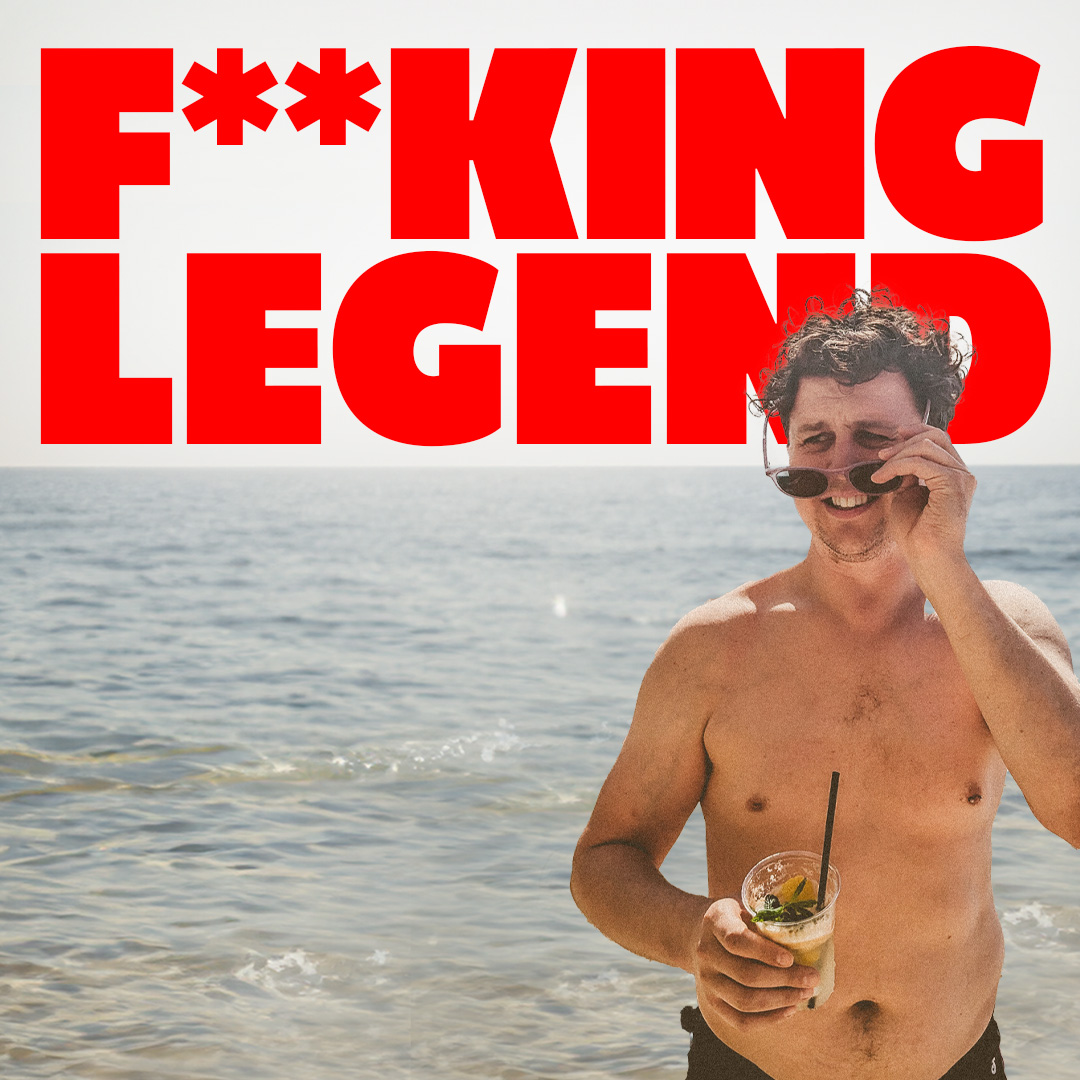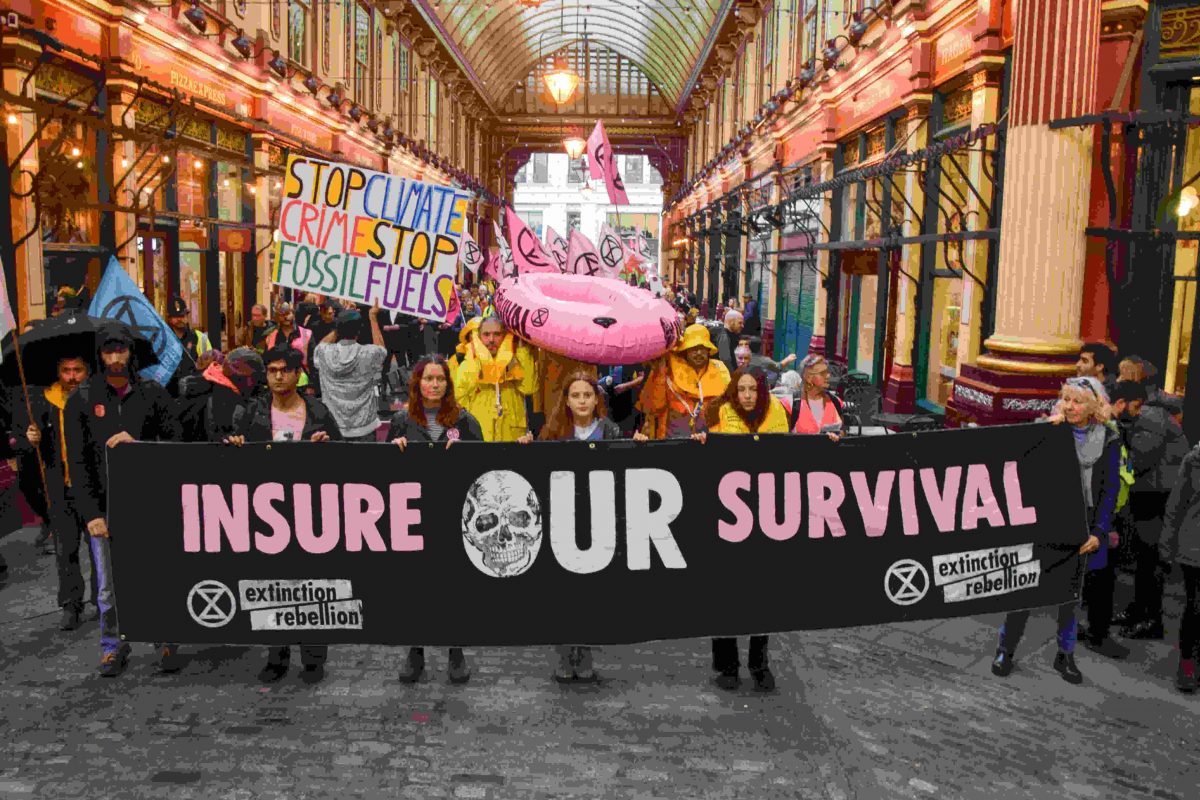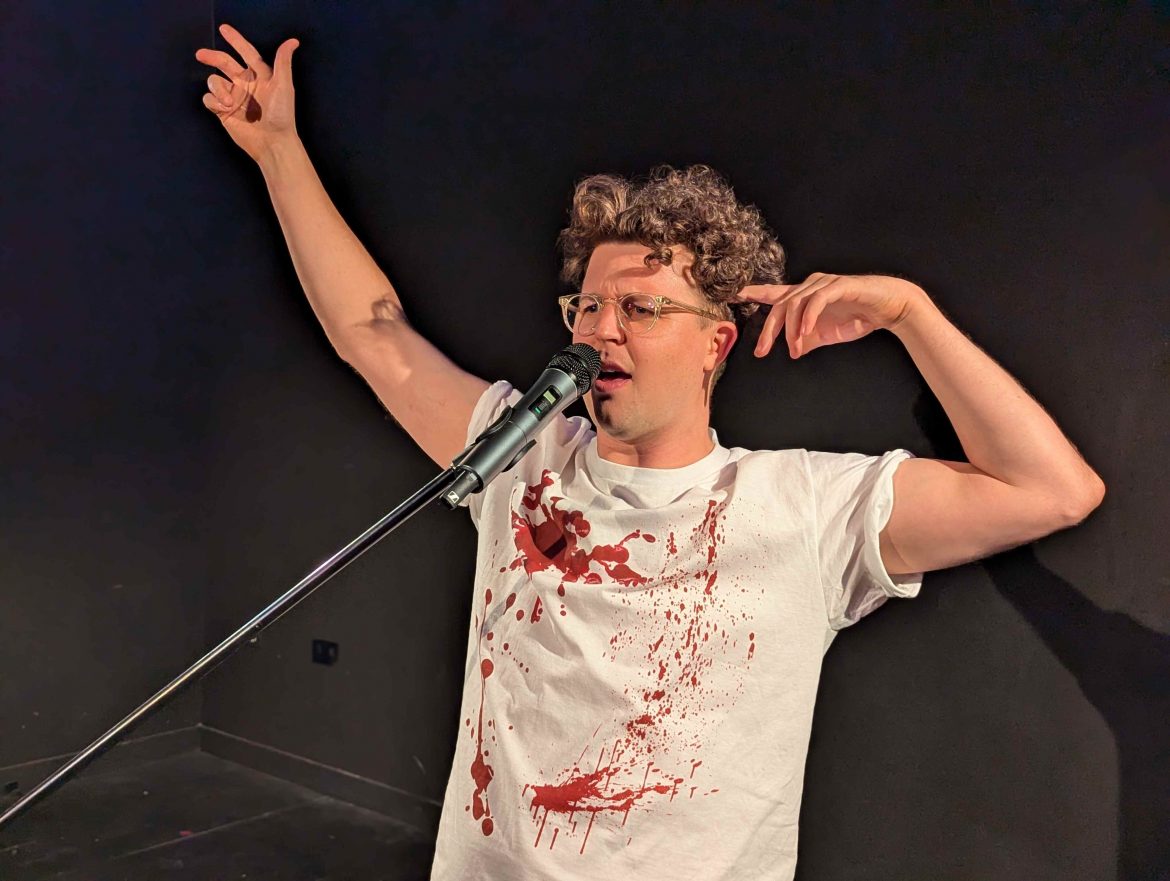Performer and writer Olly Hawes discusses his play about the climate crisis and life as a former Extinction Rebellion activist
Following a critically acclaimed run at the Edinburgh Fringe Festival this year, Olly Hawes is bringing his rollercoaster one-man performance, F**king Legend, to Riverside Studios this December.
In this absurdist, yet thought-provoking dark comedy, F**king Legend draws a parallel between the state of men and the state of the world in a critique of the everyday, middle-class white man and the consequences of late capitalism.
In two distinct acts, Hawes invites the audience to recognise their own unavoidable implication in the dystopian world and the climate crisis he depicts.

Q: Tell us a bit about the show; how does it link to your history in environmental activism?
“I think it’s probably very easy for some people to love, and very hard for others to love. It’s quite unusual, it’s quite in your face.
There is a clear link between my life as an environmental activist, which is dormant at best, and the show, which is about linking the environmental and ecological apocalypse with the modern brand of masculinity.”
Q: Can you tell us why you decided to join XR, and why you decided to leave?
“For a long time, it has been abundantly clear to me that we, as a collective global community are sleepwalking into self-immolation. It’s just bonkers that we can’t get our shit together to stop this terrible thing from happening, it’s so defeatist. Then in April 2019, there was the first real sort of surge of XR activity. I saw this thing happening and I thought finally, a collection of people has found a way to manifest the action that needs to be taken. I was so relieved in a way, and galvanised.
What’s important to know about XR, is that in that very fecund period between 2019 and 2020, in many ways that movement did exactly what it should have done. Movements like this always burn bright for a short while, and then fizzle out again. It’s about what happens in the moments where it’s burning brightly, capitalising on that. It did bring so much more awareness to the issues; it did get the government to declare a climate emergency. You can look at loads of metrics, Google searches at the time show how the public consciousness has changed between now and then.
Then there was an action that happened (during an XR blockade) where a small group of individuals within the movement decided to disrupt train stations in different working-class parts of the capital. The notion of disrupting people who are earning an hourly wage on low money, stopping them from getting to work, was complete anathema to me. That moment really frustrated me. Then I realised I was going to have a child; I wasn’t going to have as much time on my hands.”

Q: During a week-long blockade in Trafalgar Square with XR, you took some time out to receive therapy. How was that?
“I was in the therapist’s office, just beside myself crying. I couldn’t speak, I felt so guilty that I wasn’t there (at the blockade). But what that moment points to is how activists can burn out. And if you’re not careful, you can get wrapped up in it to an extent where you’re not looking after yourself.
I supposed what has happened in this dormant stage is that I started making the time to write again and having gone from being someone who was all about action when it came to the climate crisis, I was now writing about the climate crisis. Which sounds so absurd, in a way, a little theatre show about the climate crisis compared to full on activism. It’s almost laughably silly, but that’s the way that I was channelling the combination of mental and emotional stuff that was going on inside of me.”
Q: What role does the arts play in educating people?
“Less than 4% of the population in this country go to the theatre once a month, or less than 1% go once a week. By that measure, you could say that theatre is fairly irrelevant. But I think there’s another answer, which says, in an age where everything is digitised, mediatised, mediated, that going into a shared space is an incredibly potent, valuable experience. I actually think, far from us being in a place where theatre is slowly dying a death, it has the potential to become more radical and more important than ever. The problem is, at a time of austerity, the most interesting work is the work that goes by the wayside.”
F**king Legend will be running at Riverside Studios, from November 13 to December 21. To book tickets, click here.





